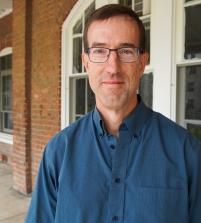Religious and Secular Identity in Berlin — Brian Britt
Several recent incidents in Berlin have escalated tensions between Muslims, Jews, and the city's secular majority
Several recent incidents in Berlin have escalated tensions between Muslims, Jews, and the city's secular majority. Over a month ago,a rabbi wearing a kippa, or yarmulke, was beaten by four "Arab-looking" youths after being asked if he and his daughter were Jewish. Public outcry led to a large demonstration in support of Berlin's Jews, including a flash mob of Jews and non-Jews wearing kippot.
Tensions escalated days later when a second incident, in which Jewish school girls were harassed by a group of youths that included a girl wearing a head scarf, led to an exchange of harsh words between Jewish and Muslim leaders, though in neither case were the attackers caught or identified definitively. After being advised to urge greater religious tolerance, Muslim leaders denied responsibility for the attacks and pointed out their own experiences of intolerance in the city.
Then on Yom Kippur, two more anti-Semitic incidents took place — the first when a young white man threatened a local Jewish leader and told him to go back where he came from, and the second when a mother and her daughter were forced out of a taxi after telling the "German" driver they were going to synagogue. Diedre Berger of the Berlin office of the American Jewish Committee has now intervened, asking the German government to develop an action plan to combat anti-Semitism.
Meanwhile, a contrasting alliance between Jews and Muslims has formed in the aftermath of a regional court ruling against circumcision. Government and religious leaders, including Chancellor Angela Merkel, have denounced it and announced plans to create government regulations allowing circumcisions to be performed. And in Berlin, a demonstration against the case featured Jewish and Muslim leaders "united for circumcision," according to a headline in the Tageszeitung. Religious leaders at the demonstration welcomed the chance to work together — despite current tensions — against what they consider to be the greater adversary of secular intolerance toward religion.
It was against this background that public attention shifted to the global conflict over the anti-Islamic film, The Innocence of Muslims. In Berlin, right-wing nationalists announced plans to bring American pastor Terry Jones to Berlin for a showing of the anti-Muslim film, but the government blocked his visit, and the event did not take place.
Observant Jews and Muslims constitute small minorities in Berlin, though people of Turkish descent number around a quarter of a million. The Jewish community of Berlin has about 11,000 active members, a fraction of the city's total Jewish population. Self-identified Christians are more numerous, but even they are greatly outnumbered by non-practicing and unaffiliated Berliners. In a city famous for decadent nightclubs and countercultural artists, religion has become a kind of curiosity.
The recent "Long Night of Religions" featured open houses at sixty-five different religious organizations, ranging from Buddhist and Muslim to Quaker and Sikh. A smaller event featuring Christians in particular, the Berlin Festival of Churches (with an appearance by pop-star-turned-Christian Nina Hagen) followed two weeks later.
All of these stories have received significant attention in local and national media.
But "religious" issues can only be understood in the larger context of "secularized" Berlin. What other factors divide and unite Berliners? How do conflicts and alliances between religious minorities reflect dynamics within the majority? Political, economic, social, generational, and aesthetic divisions are obvious, but economic and cultural indicators suggest that the greater sources of division remain the Cold War and the two World Wars in which Berlin was a geographic and political center.
Berliner Walter Benjamin (1892-1940) identified the culture of distraction as a key political feature of modern life. Debates over how to memorialize the past, renovate neighborhoods and public places, and manage economic changes preoccupy Germans ambivalent about the image and swelling budget of their capital city. It is no wonder that a city so burdened with history succeeds so well at providing diversions, from new beach volleyball venues to all-night techno parties. But without a broad discussion of German and Berliner identity, the status of minorities here remains uncertain, leading Jewish leader Charlotte Knoblauch to ask, "Do you still want us Jews?"
For residents still grappling with a catastrophic modern history, the concerns of Jewish and Muslim minorities could either serve as an interesting distraction or a chance to examine the markers and dynamics of "secular" identity in Berlin.
 Brian Britt is a professor in the Department of Religion and Culture at Virginia Tech. His most recent book is Biblical Curses and the Displacement of Tradition. He is currently a guest fellow at the Zentrum für Literatur- und Kulturforschung in Berlin working on a book about Walter Benjamin and religion.
Brian Britt is a professor in the Department of Religion and Culture at Virginia Tech. His most recent book is Biblical Curses and the Displacement of Tradition. He is currently a guest fellow at the Zentrum für Literatur- und Kulturforschung in Berlin working on a book about Walter Benjamin and religion.


